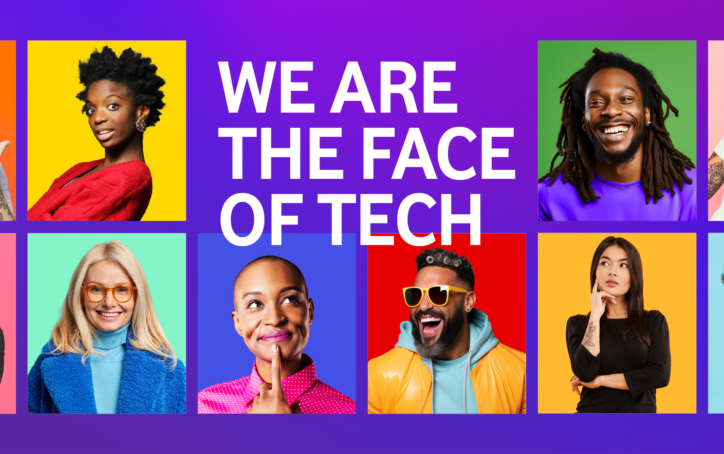
Major study on neurodiversity in tech sector highlights need for more inclusive and accessible workplaces
Nearly half of neurodivergent employees feel impacted by their conditions in the workplace with a quarter disclosing that they were impacted every day, a major global study carried out at Colt, Nokia, Samsung, and Vodafone has revealed.
The new research also found that for neurodivergent people, company culture, workplace environment, and systems can exacerbate their impairments in both recruitment and everyday working life. More than half of those who self-reported as neurodivergent had not disclosed their condition(s) because they did not have a formal diagnosis (55%) or did not see the value in disclosing it (53%).
The research was carried out by the Tavistock Institute of Human Relations and Inner Ambitions on behalf of the #ChangeTheFace Alliance, set up in 2021 to bring leading global tech companies and organisations together to collaborate on increasing diversity and equality in the technology industry.
As part of the research, a global survey was conducted among neurotypical and neurodivergent employees at Colt, Nokia, Samsung, and Vodafone with a total of 2,176 respondents – representing the largest global workplace survey on neurodiversity in the tech sector to date1.
The research has highlighted four key learnings for the wider technology sector to build more inclusive and accessible workplaces that can enable all employees to thrive and increase diversity.
- Organisations must foster trust and proactively explore support options, making the workplace more accessible for neurodivergent individuals.
- Organisations need to evaluate their culture’s impact, making adjustments to support neurodivergent employees effectively.
- Support should be accessible without a formal diagnosis or disclosure, promoting inclusivity and understanding.
- Organisations must invest in training to foster a culture of allyship and understanding.
Serpil Timuray, CEO Europe Cluster, Vodafone Group and #ChangeTheFace Alliance Chair, said: “Our mission at #ChangeTheFace is clear – to work together as an industry to catalyse positive change for a more diverse and inclusive tech sector. Our new insights aim to support the industry to drive positive change, so we can take action to remove barriers in the workplace for neurodivergent employees and create a more accessible and inclusive future for everyone.”
Keri Gilder, CEO, Colt, said: “We’re passionate about inclusion at Colt and I see accessibility as inclusion in action. We all know someone who is neurodiverse even if we don’t realise it and we need to make sure people don’t face needless barriers. It was important for us to be a part of this research so we can make sure we’re on the right path as a business and be part of driving change within the tech industry. We’ve launched an accessibility roadmap earlier this year and this study will inform our plans going forward. We know we can do more and we absolutely will.”
Kat Gray, VP, Organization & People Development, Nokia, said, “Teams with neurodivergent professionals can be way more productive and creative than those without them – this is the potential we want to help grow. The Neurodiversity in Tech Sector Survey provides us with the needed insights about the barriers in the career journeys of our neurodivergent people throughout their employee life cycle.”
Benjamin Braun, CMO at Samsung Europe, said: “Whether neurodivergent or not, business leaders need to become diversity champions and encourage more applicants from a broader range of backgrounds and with a wider set of skills and qualities. Physical and neurological diversity should be championed in the workplace and employers need to support this by providing the right tools and technology to allow colleagues with disabilities to thrive and contribute on a level playing field.
“The benefits of a diverse workforce are clear, yet employees either don’t feel supported or don’t know enough about what it means to be neurodivergent. Creating a culture where we talk openly about neurodiversity, and learn from each other, will be critical in creating truly diverse workplaces where everyone can succeed.”
WIDER SURVEY FINDINGS
46% of neurodivergent employees felt impacted by their conditions on most days or every day in the workplace, with only 6% never feeling impacted by it. A quarter said they were impacted every day.
More than half of those surveyed who self-reported as neurodivergent and had not disclosed their condition(s), had not done so because they did not have a formal diagnosis (55%) or did not see the value of disclosing it (53%). Around a quarter or respondents cited a fear of stigma (27%) or of reduced career opportunities (24%).
Only 9% of neurodivergent employees had requested an adjustment or support at work, with the majority of those disclosing their condition. Of the majority that did not ask for adjustments, 61% did not think they needed any. But a third (32%) were worried about how it would look, and 29% did not know what to ask for.
Neurodivergent employees also cited a range of challenges they typically faced at work, ranging from navigating the hiring process, day-to-day work and social interactions, and transitioning careers.
- Hiring – In every area surveyed, neurodivergent employees found the process of being hired more challenging than neurotypical employees. Nearly four in ten (39%) found salary-related discussions challenging, along with typical recruitment situations like creating a CV (24%), searching for a job (21%) and attending face-to-face interviews (21%).
- Workplace interactions – Around half of neurodivergent employees felt overwhelmed by distractions in the office (49%) compared to 14% for neurotypical employees. Other challenges included being unable to mentally prepare fully for meetings (30%), not feeling valued (25%) or included (18%) or feeling judged by colleagues (19%).
- Day-to-day – Neurodivergent employees identified their biggest day-to-day challenges as managing workload (46%), looking after their well-being (44%), having long meetings without breaks (43%) and time management (38%).
- Career transitions – Neurodivergent employees found applying for new positions and promotions more challenging (28%), compared to neurotypical employees (18%), and the research found that fewer (42%) had been promoted compared to their neurotypical peers (56%).
Overall, about two-thirds (64%) of neurodivergent respondents wished for more effort and allyship from their neurotypical colleagues to help understand their behaviour. 46% of respondents said they wanted to have ‘unwritten rules’ in the office explained to them, and 44% wished that their colleagues would recognise when to leave them alone.
At the same time, neurotypical employees also recognised the need for more awareness training (78%), better knowledge of available accommodations for their neurodivergent colleagues (53%) and more senior leadership role-modelling of inclusive behaviours (44%).
CONDITIONS OF RESPONDENTS
| Attention deficit hyperactivity disorder (ADHD or ADD) | 10.8% |
| Dyslexia | 5.4% |
| Autism Spectrum Disorder (ASD) | 5.1% |
| Obsessive Compulsive Disorder (OCD) | 4.5% |
| Other (Down-syndrome, Dysgraphia, Dyspraxia, Synaesthesia, Tourette’s Syndrome) | 3.3% |
| Other (Other conditions not listed or assumed conditions) | 1.7% |
Note: Neurodivergent respondents in some cases disclosed two or more conditions concurrently.
Nearly 30% of neurodivergent employees reported having two or more conditions, and 8% had three or more, with analysis revealing that those with multiple conditions faced more challenges during recruitment and in the workplace.
Additionally, the survey found that on average, neurodivergent employees rated their mental health worse than neurotypical colleagues, with 15% of neurodivergent individuals rating their mental health as poor or very poor, compared to 2% for neurotypical colleagues.
#CHANGETHEFACE ALLIANCE
#ChangeTheFace began in 2019 with Vodafone asking a simple question to 8,000 people in ten markets: “If technology were a person, what would they be?” – with the answer “young, white, middle-class and mostly male”. This led to Vodafone’s call for action, inviting leading tech companies to pledge support.2
The campaign attracted more than 300 industry pledges and evolved into the #ChangeTheFace Alliance, formed in September 2021 by leading global tech companies and organisations including Deloitte, Digital Boost, Ericsson, Meta, Founders4Schools, Girl Effect, IBM, Nokia, PwC, Samsung, UN Women and Vodafone.
The Alliance members have agreed to collaborate on common initiatives to scale and accelerate their impact. An open-source portal has been launched that shares the Alliance members insights, learnings, case studies, best practices on diversity and inclusion for wider use throughout the global tech industry at: www.change-the-face.com.
Read the full Neurodiversity In The Tech Sector report here
FOOTNOTES
- Breakdown of respondents: 1,425 neurotypical, 562 neurodivergent, 189 unsure/prefer not to disclose. This survey constitutes the largest global workplace survey of tech sector employees to date focusing on the overall experience of neurodivergent colleagues compared to their neurotypical colleagues. This was supported by a literature review and focus groups with neurodivergent employees and HR professionals across the four companies.
- Earlier 2019 survey: Opinium survey commissioned by Vodafone on global perceptions of technology and representation among 8,504 people in 10 countries: UK, Ireland, South Africa, India, Spain, Italy, Germany, Hungary, Greece and Turkey.



